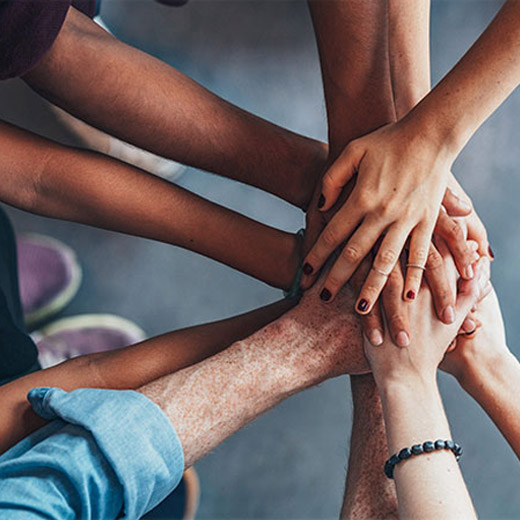Drug and alcohol addiction are challenging to address when they affect you or someone close to you. By using professional addiction treatment services it is possible to treat drug addiction or alcohol addiction just like other diseases and achieve long term abstinence.
On this page we detail how an holistic treatment program can encourage you or a loved one to begin and sustain a life without drugs or alcohol.
What is Addiction Rehab (Rehabilitation)?
Addiction ‘rehab’ is the process of medical treatment and counseling to address your dependence on substances like recreational drugs, prescription drugs and alcohol. There is no ‘one size fits all’ approach to rehab because it should be tailored to your requirements and may incorporate detoxification, inpatient and outpatient support, and extended relapse prevention programs.

Facts & Statistics about Addiction in Thousand Oaks
Prevalence of Substance Use Disorder, by Drug Type
(IN THOUSANDS)
- 2,7578.5%Any Substance
- 2,0886.4%Alcohol
- 1,0683.3%Ilicit Drugs
- 2060.6%Pain Medication
Drug- and Alcohol-Induced Deaths by Age Group, California, 2016
- Alcohol-Induced
- Drug-Induced
- 18 to 250.5
- 9.6
- 26 to 354.3
- 13.9
- 36 to 6424.2
- 22.9
- 65+23.7
- 9.4
Drug Use, by Selected Type and Age Group California, 2015 to 2016
- 12 to 17
- 18 to 25
- 26+
- Marijuana*13.2%
- 34.0%
- 13.5%
- Misuse of Pain Medications3.5%
- 8.0%
- 4.3%
- Cocaine0.8%
- 7.2%
- 1.8%
- Heroin0%
- 0.4%
- 0.2%
What are the treatment options available in Thousand Oaks?
Through integrating treatments, the root causes of substance use disorders can be addressed and treated. Learning coping strategies to treat the primary causes of your substance dependency is just as crucial as treating the symptoms of addiction.

Private Residential Programs
A residential rehab program is when you live at the treatment center and receive all necessary treatment within the property. Having Access to 24-hour support and addiction treatment is obviously one of the core benefits.
If you leave your home and move into a treatment facility, you can free yourself from vulnerabilities to stressors that influenced your decision to abuse substances or alcohol.
If you reside in a safe and secure environment you can protect yourself against relapse and increase the odds of finishing your addiction rehab program. Those who struggle with dual diagnosis, co-occurring illnesses or severe substance dependencies are recommended to consider an inpatient rehab program. Enrolling in a residential rehab program is the most effective way to a sober life, and maintaining it will require ongoing focus because maintaining recovery is difficult during the first year. Upon completion of your residential treatment program, you will transition towards more independence as you build goals for your new life.
Do You Need Help?
Our admissions team is ready to answer your questions.

Sober Living Programs
Support and guidance are provided during a sober living program in order to control your future goals better. The programs typically have:
- A house manager to check in with you daily
- Establish boundaries for your behavior in recovery
- Friendship and support from those who are there for the same reasons as you.
Outpatient Programs
Outpatient programs provide greater flexibility because you can attend work commitments and remain at home, but you visit the rehab facility for your treatments.
Outpatient programs teach you:
- Education around substance use disorders
- Therapeutic support and counseling in the form of group therapy or one-to-one interventions – The duration of any outpatient program is unique to your needs and lasts between three months to over a year.
Detox Only Programs
The need for detoxing a substance from your system is the first phase towards rehabilitation, as it rids the system of the substance, putting an end to your physical dependence. You typically experience withdrawal symptoms as a natural response to the absence of drugs or alcohol in your system.
After this you will move forward in your rehab journey, as you begin addressing the root causes that lead to your dependency, to help you recognise the patterns and avoid it in the future. It is possible to still experience withdrawal symptoms and cravings for some time after your detox program is complete. You can reduce your chance of relapse by building coping strategies for your new life in recovery.
Paying for Private Treatment
If you wish to continue with private rehab, you will need to pay for treatment yourself or make a claim via your health insurance provider. Most insurance providers can contribute to some of the costs associated with drug and alcohol rehab, including a medically-managed detox, rehab therapy and medical supplies, as well as aftercare support. The amount covered for your rehab treatment is down to your provider and the terms of your policy.
We recommend that you identify how much cover you are entitled to prior to registering for a rehab program. Our Verify Your Insurance page can help you understand how much cover you can claim for. If you choose not to claim against your policy, the cost of your treatment needs to be covered directly. Many rehab centers are willing to extend payment options to clients who may find paying upfront for treatment a challenge.
State Funded Programs
State-funded treatment programs have been developed to assist people without the financial means to overcome alcohol addiction or substance addiction. These programs work by using government funds from state budgets, Medicaid and federal government to provide addiction recovery by offering:
- Services for a safe detox (medically-supervised if required.
- Addiction counseling, therapy and aftercare support services
These types of programs are designed to support individuals with little disposable income or those with little to no health cover. In order to enroll you need:
- Proof of residence
- Proof of finances
- Details about your addiction from your medical history and information about your substance misuse
- Proof that you have the legal right to live and remain in the US
https://www.grants.gov/ gives all the info required to start the application process. You can also download this file for your state agency’s direct contact details.

The following state-funded addiction rehab programs are available in Thousand Oaks:
Westlake Village Family Services
3625 East Thousand Oaks Boulevard, Suite 225, Thousand Oaks, CA 91362
818-730-2960
www.westlakevillagefamilyservices.comRylist Inc La Ventana Treatment Programs
385 North Conejo School Road, Thousand Oaks, CA 91362
833-239-3552
laventanatreatment.com
Maintaining Addiction Recovery in Thousand Oaks
When you leave and complete your treatment programme, you may find it challenging. When you were in rehab the environment was controlled and you had support from professionals. After leaving the rehab center you may encounter unanticipated challenges that you are not prepared for. Long term sobriety is more difficult to maintain when you have had a severe dependency and do not have social support when you leave rehab. Relapse can occur when you don’t have aftercare to support you in your new-found sobriety.
The following AA/NA meetings are available in Thousand Oaks:
Women do Recover
In Person:
1600 E Hillcrest Dr. Thousand Oaks, CA 91362
Sunday: 5:30 PM – 6:30 PM
http://www.clana.org/HOW HOUR GROUP
HOW Hour Group, Non-Smoking, Discussion/Participation and Open:
2667 North Moorpark Road, Thousand Oaks, CA, 91360
Thursday: 7:30 pm
https://www.drugstrategies.org/AA - A New Attitude
Closed:
3797 Lynn Road, Thousand Oaks, CA, 91358
Monday: 6:45 am – 7:45 am
https://alcoholicsanonymous.com/
Aftercare & Alumni Programs
Aftercare programs provide extended support to you when you leave the rehab center. Unfortunately Relapse can happen in 60% of people, and due to the unpredictability of life post-rehab, having relapse prevention & support is an integral part of your journey in recovery.
Once you finish your rehab program, you will consider the services most beneficial to your needs long-term, and a relapse prevention package will be created to help you sustain it.

Those who complete their drug or alcohol treatment programs will gain access to an alumni community program such as ours, which provides you the opportunity to interact with staff and peers. You will be able to attend team events, take part in various initiatives, build connections, and receive support from other ex-clients in recovery. You may also reciprocate in the program by supporting other people if you like.
Support Groups (Fellowship Meetings)
Support groups will always be an integral function of long-term recovery because social responsibilities enable sobriety. A couple of the oldest and most important support groups are Alcoholics Anonymous and Narcotics Anonymous, which make use of the 12-step model to support individuals in recovery through group meetings. During meetings, other members can share their experiences and learn from the experiences of others. By building friendships and staying committed to the programme, individuals in recovery can feel encouraged to take responsibility for themselves and protect those that love them.
Support for Families & Children Affected by Addiction

The whole family is impacted by a loved one struggling with addiction, and some to a greater extent than others. It’s not only the person with the dependency who is hurt, the other family members need help too.
Participating in family support groups can help you to manage the situation better, and also help you in providing greater support to the individual with the dependency. Family members will benefit from joining support groups such as:
- Parents of Addicted Loved Ones
- SMART Recovery Family & Friends
- NAMI Family Support Groups
- Al-Anon
- Families Anonymous
- Alateen
- Nar-Anon









